|
We've kept bees for a few years now, and have enjoyed some very delicious honey crops. However beekeeping also has another product... the wax. When you extract the honey you remove the wax capping that the bees make to seal it in, and we also remove old frames that have got too dark to inspect easily. Nothing is worse than peering in to the bottom of the cell trying to decide if you can see eggs, when the frame is filled with staining from many generations of bee-raising.
Now we have 5 hives we have quite a bit of wax that needs recycling, so there was more than we could use ourselves on the items that Dad turns. So there's now some polish available to buy, and here's how we make it.
The polish itself is pure beeswax, and olive oil... Nothing else.
I've just given my Matchless spinning wheel an autumn clean up. I removed all the dirty old oil, and gave it a rub down with some polish. To use, just wipe a cloth over the surface of the tin, rub on to the wooden parts of the wheel, leave for a few minutes, then buff off. Better to use a small amount and do it again later than to use too much, otherwise you'll end up with a sticky wheel. It's not a replacement for oil on all the rotating parts (yes, your wheel needs oil, put it on every part that moves, unless it has sealed bearings, and even then you still need oil for the flyer shaft). You can buy the polish below, or head over to the shop and take a look around and see if there are any other goodies to keep it company... One of the things that visitors to Wales always comment on is that if you blink the weather changes. Today was prime example! Waking up to a blizzard, and the hills being white over. Three hours later and the snow has melted, and it's back to being a chilly, sunny, spring day. Our beehives have had a lovely start to the spring, all 5 hives survived the winter, and are starting to bring in lots of pollen and nectar. They're very comfortable on their new stands, made from the bottom sections of display boards recycled from Newtown Textile Museum. We've swapped some of the hives in to polystyrene hives, and those colonies have done really well because they're so well insulated.
One of the things that people often comment when they come to Wonderwool is how much they love the drive through the scenery. Last year Meirionydd Beekeepers were at the Royal Welsh Show, and we had a lovely video playing on loop. I can't embed it here, but it's a lovely peaceful watch, really worth going to look at. I recently heard Julie Andrews being interviewed about The Sound of Music, and of course Mary Poppins. Hence the title, however the outfit you wear for beekeeping makes even a nanny's uniform look glamorous. The bees have not done well this winter. It's been mild, and the bees have been out flying too much. Cold temperatures are much better for bees, it encourages them to stay in a more dormant state, and they use less of their food stores. When the weather is too warm they go out making foraging flights, but of course there's nothing for them to find in February. Round here the trees are yet to start flowering, and the spring bulbs are only just starting to come out. We harvest honey from our hives, but try to make sure to leave them enough stores for winter. How much to leave is something of a guessing game, and partly down to experience. We thought we'd left them plenty of stores, but apparently not. By early February 2 of the 3 hives had eaten all their stored honey. We gave them fondant icing to eat, but for some reason the bees never went up in the super to eat it and unfortunately 2 colonies starved before we realised they weren't eating their supplemental feed. The 3rd colony however was still alive, so to try and make sure they stayed that way we're now feeding them sugar syrup. This mimics the nectar they get from flowers, and will keep them alive until the spring flowers start providing them with enough food. The next few weeks will be sticky ones involving pans of sugar syrup.... Bee Proboscis drinking up the syrup. Look closely at the bottom of the ridged clear plastic. The syrup goes in to a tray that sits on top of the hive, the bees can come up in the syrup feeder via wooden cone with a hole in the middle. The clear plastic lid stops them drowning in their own food because they can only get down to the base of the cone to drink in a small gap. The hive lid goes on top of the whole thing, and the bees get breakfast in bed!
It's been a great summer for the bees, plenty of warmth and lots of pollen and nectar to collect, just what was needed after our very cold spring. Our height and general weather played in our favour this year, our bees hadn't really started to do much when we got the unseasonable snow at the start of April, as a result they didn't end up starving because the colony size was too large to be supported by the available food. We increased from 2 hives to 3, and got a really nice looking honey crop. This is a super full of frames of honey, we got 2 and a bit of the productive hive, and will take a look in a couple of days to see what's going on and if there are any frames to come off, while still leaving the bees enough food for the winter. Mum and I did the extracting this morning and it looks like we'll have a nice number of jars to sell. The observant ones among you will spot my workshop being put to an alternative use, all that easy to clean set up was rather handy for dealing with the sticky you get from extracting honey. (Everything was of course thoroughly cleaned before we started). Once you've spun the uncapped frames in the extractor the honey collects at the bottom of the tank, and then is filtered off in to a storage bucket. The sieve collects the wax, and any other bits and pieces that you don't want in a jar of honey, and then it's just a case of leaving it to settle to let the air bubbles float out for 24 hours and we can get it in to the jars.
|
Archives
January 2024
Categories
All
|
Hilltop CloudHilltop Cloud- Spin Different
Beautiful fibre you'll love to work with. Established 2011 VAT Reg- 209 4066 19 Dugoed Bach, Mallwyd, Machynlleth,
Powys, SY20 9HR |

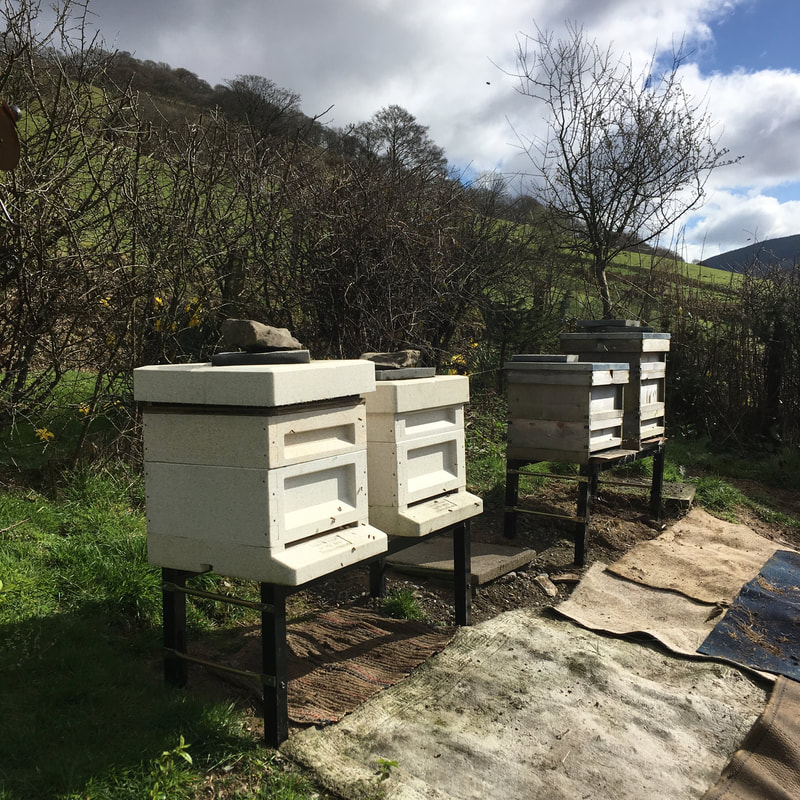
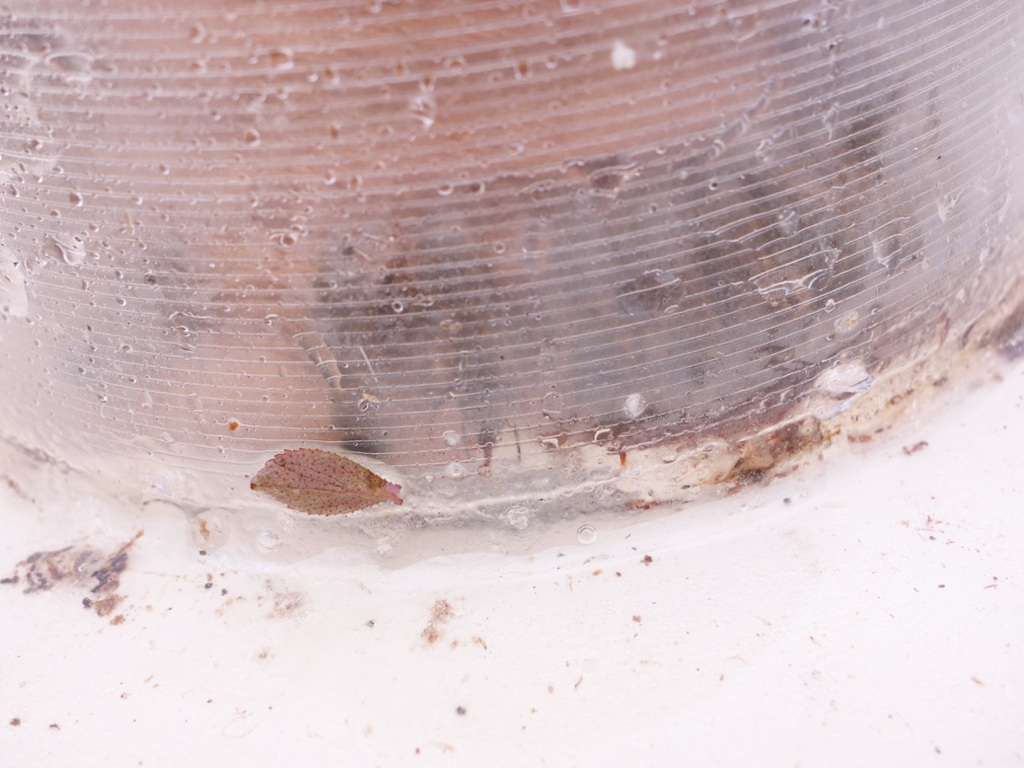
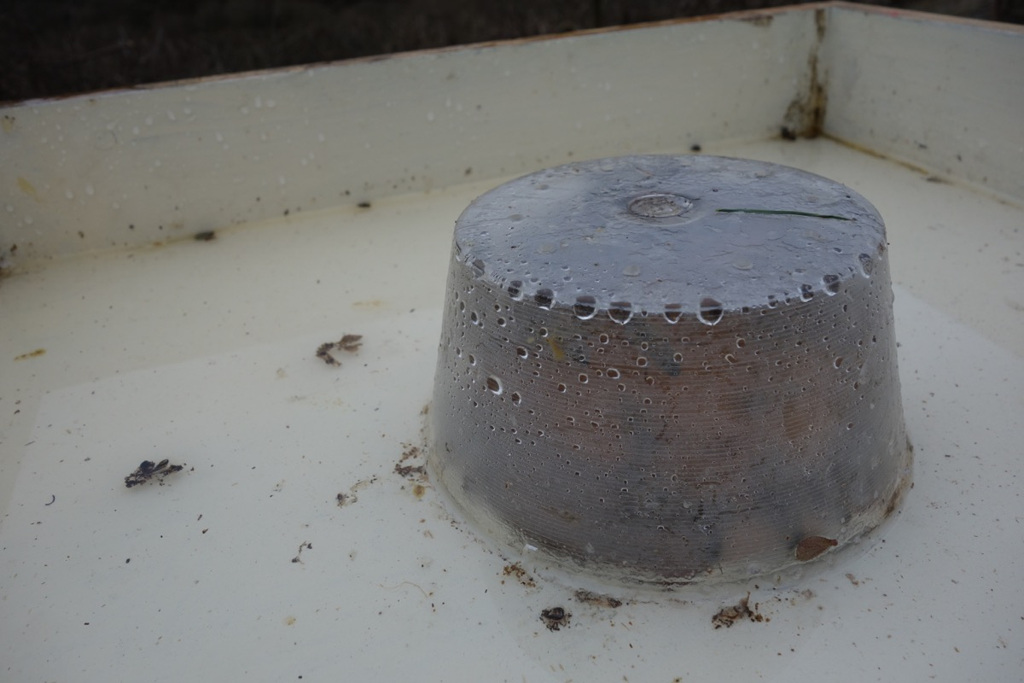
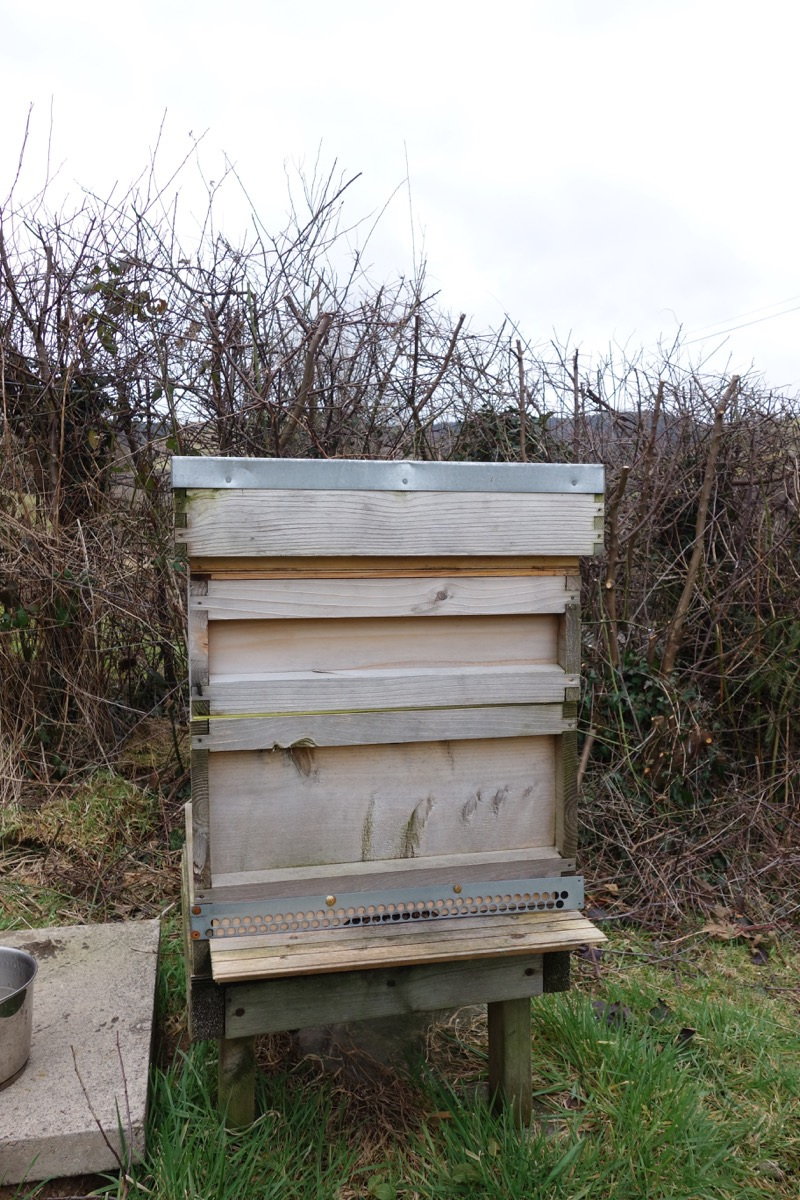
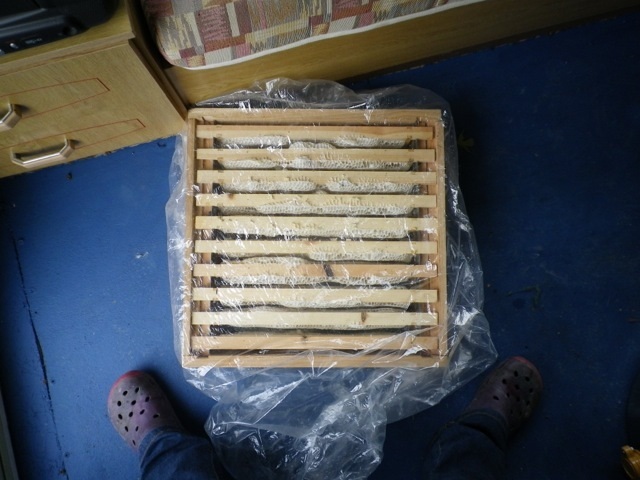
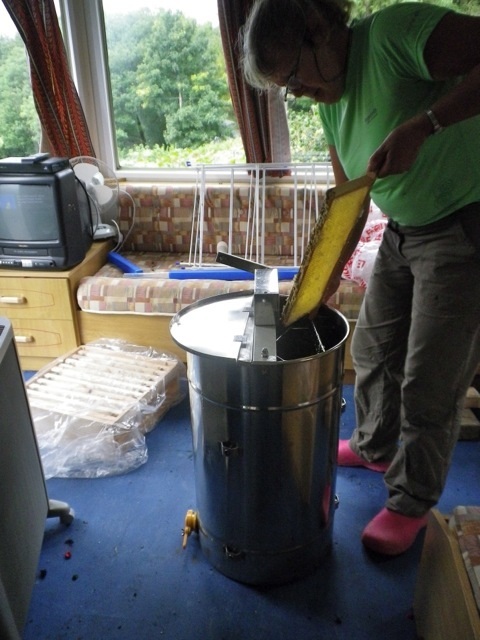
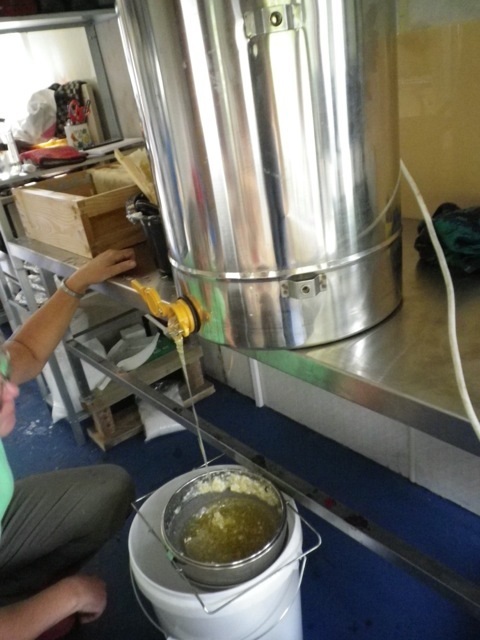
 RSS Feed
RSS Feed


